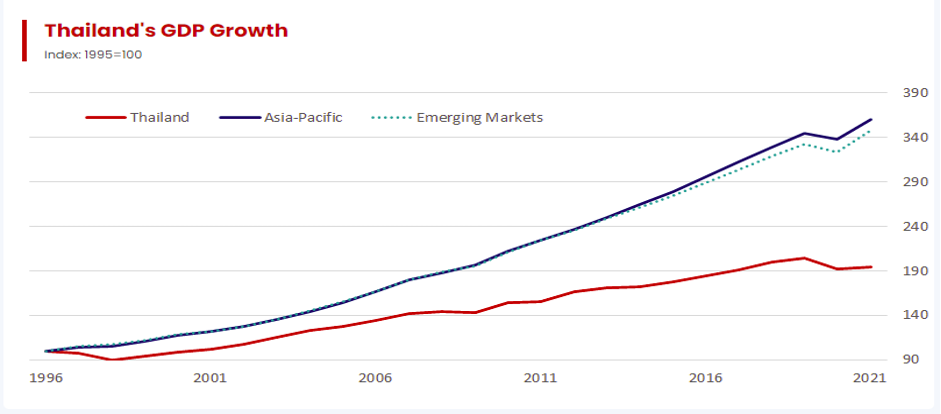discuss and analyze the FDI and attractiveness of Thailand, focusing on its economic and political environment, investment policies, and prospects for future growth.
Foreign direct investment (FDI) is a crucial driver of economic growth and development, as it can bring in new capital, create jobs, transfer technology, and stimulate local economies. Thailand, located in Southeast Asia, is one of the region’s most attractive destinations for FDI due to its strategic location, business-friendly policies, skilled workforce, and abundant natural resources (Wahyuni et al., 2013). This paper aims to discuss and analyze the FDI and attractiveness of Thailand, focusing on its economic and political environment, investment policies, and prospects for future growth.
Economic and Political Environment
Thailand has a mixed economy that is heavily dependent on exports and tourism. Its GDP in 2020 was $505 billion, and it is the second-largest economy in Southeast Asia after Indonesia. The country’s economic growth has been hampered in recent years by political instability, social unrest, and the COVID-19 pandemic (Arnakim & Kibtiah, 2021 pg. 4). However, Thailand’s economy is expected to recover in the coming years, driven by the government stimulus measures, infrastructure projects, and the expansion of key industries, such as automotive, electronics, and food processing.

Thailand’s political environment has been volatile in recent years, with frequent changes in government and periods of social unrest. The military has played a prominent role in Thai politics and has experienced several coups. However, the current government has been in power since 2014 and has implemented several reforms to improve the business environment and attract foreign investment.
Investment Policies
Thailand has a business-friendly environment, and the government has implemented several policies to attract foreign investment. The Board of Investment (BOI) is the main agency responsible for promoting and facilitating FDI in Thailand. The BOI offers a range of incentives, such as tax exemptions, import duty exemptions, and permission to own land, to attract foreign investors (Wahyuni & Utari, 2013 pg. 3). The agency also offers a one-stop service for investment applications, streamlining the investment process and reducing bureaucracy.
Thailand’s policies aim to attract foreign investment in several key sectors, including manufacturing, agriculture, services, and technology. The country’s skilled workforce, high literacy rate, and strong education system make it an attractive destination for knowledge-based industries like IT and biotechnology. With a focus on these sectors, Thailand offers an environment conducive to foreign investment, enabling businesses to leverage the country’s resources and skilled workforce to drive growth and profitability.
Case study
Toyota has been operating in Thailand for over 50 years and has invested heavily in the country’s automotive industry. The company has established several production facilities in Thailand, including a factory that produces engines for export to other countries (Kaosa-Ard, 1993). The investment has created jobs for thousands of Thai workers and contributed to developing the country’s automotive industry.
Intel Corporation is another example of successful FDI in Thailand. The company has been operating in the country since 1995 and has invested over $5 billion. Intel’s investment has created jobs for thousands of Thai workers and contributed to developing the country’s high-tech industry. Thailand’s semiconductor manufacturing facilities supply computer processors to customers worldwide.
The attractiveness of Thailand for FDI
Thailand’s attractiveness for FDI stems from several factors. Firstly, its strategic location in Southeast Asia provides access to markets and supply chains in the region. Secondly, Thailand has business-friendly policies that support foreign investment, such as the Board of Investment’s incentives and streamlined investment application process (Wahyuni & Utari, 2013 pg. 3). Thirdly, investors can leverage the country’s skilled workforce and abundant natural resources.
Thailand’s diverse economy is another aspect that makes it an attractive destination for foreign investors. The country has a range of industries, from automotive and electronics to textiles and food processing, that offer opportunities for investment and growth. Additionally, Thailand is known for its tourism industry, which contributes to the country’s economy and provides opportunities for investment in related sectors such as hospital
Order this paper